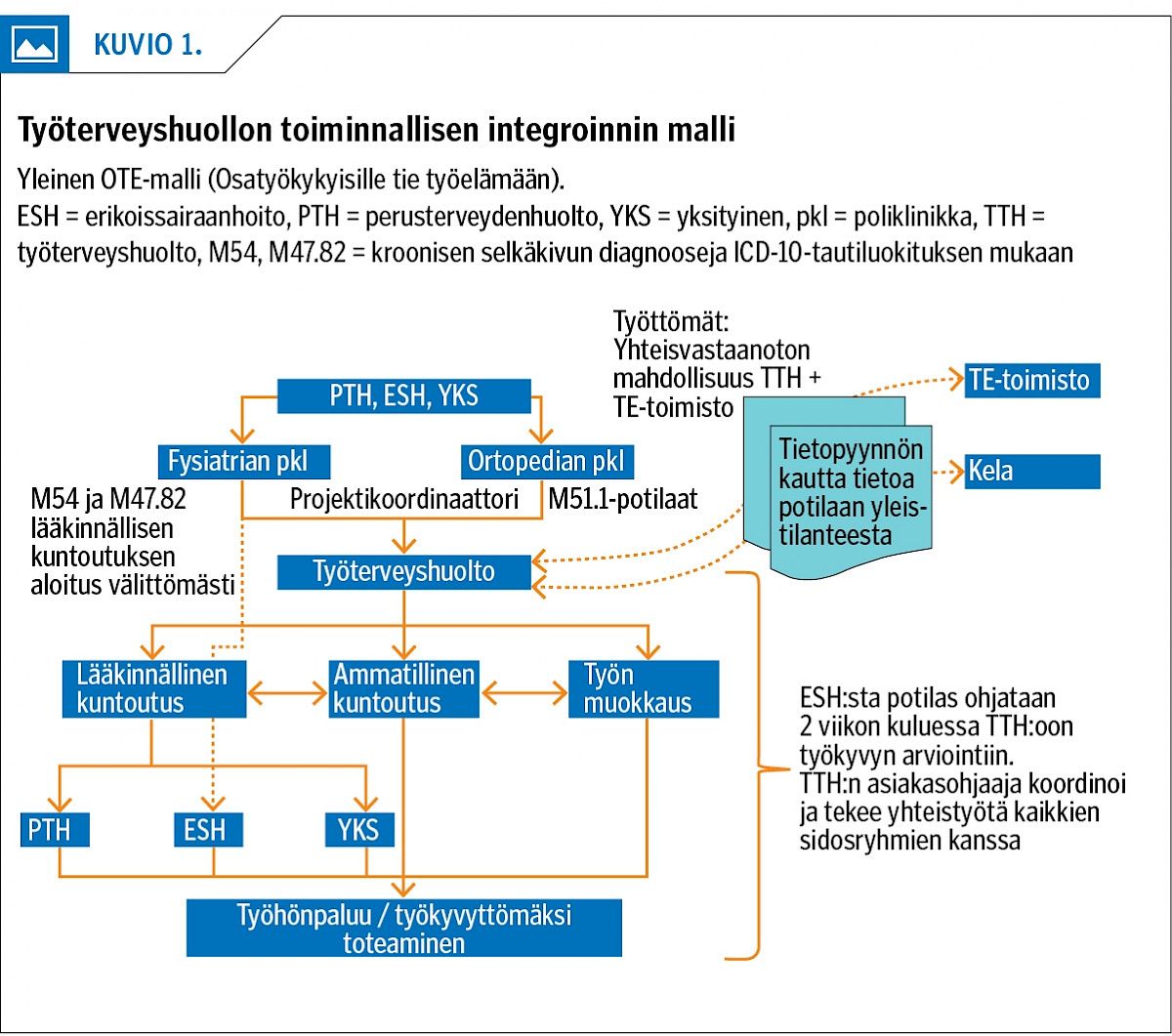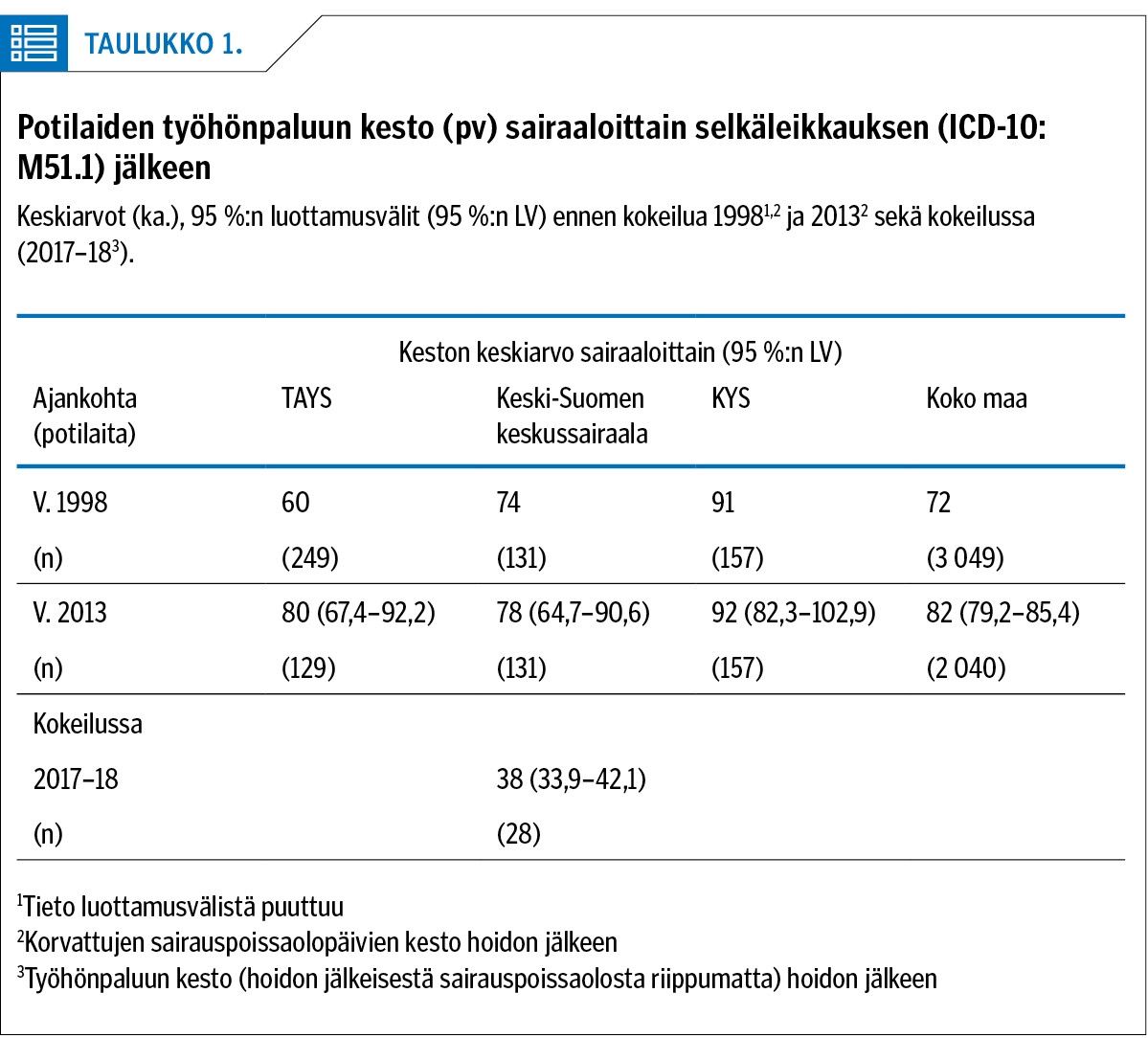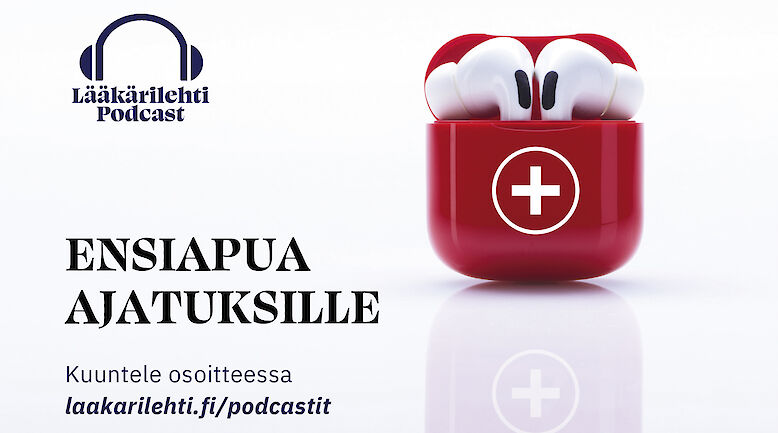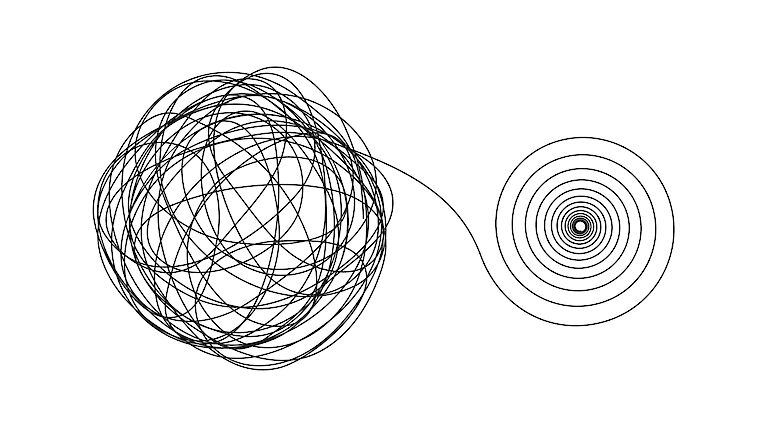New support for return to work of temporarily incapacitated workers: Results of operational integration of occupational health and other health services
Background As a trial scheme of the Hospital District of Central Finland, in spring 2017 a project was started to operationally integrate occupational health care with other health care services and social benefits. The aim was to shorten return-to-work (RTW) periods. The project was funded and steered by the Finnish Ministry of Social Affairs and Health and was supported and implemented with the backing of various stakeholders.
Methods The investigational group consisted of patients who had undergone back surgery (M51.1) and patients suffering from chronic back pain (M54) who were temporarily unable to work. After an operation or treatment, orthopaedists or physiatrists did not put patients on 2 to 3 months’ sick leave as usual. Instead, within two weeks the patients were referred to occupational health care. The case manager thereafter took care of the necessary support for returning patients to work as soon as possible. The outcome of this case management model was assessed on the basis of the change in the length of the return-to-work period.
Results The main qualitative change was the way in which the patients were examined and advised with regard to returning to work two weeks after their discharge from hospital. As main quantitative result, instead of the previous recovery periods of 78 days, patients now returned to work in 38 days. If these outcomes are assessed on the basis of the average benefits per patient from the Social Insurance Institution, the cost saving per patient was 2280 euros.
Conclusions As a new model for integration of occupational health care with the rest of health care and social benefits, case management requires the definition of shared targets and the operational commitment of various actors. If these conditions are fulfilled, the return-to-work periods of both surgical and chronic back pain patients could be significantly shortened and costs of income subsidies reduced.















